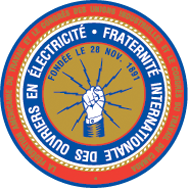June 21 marks National Indigenous Peoples Day, a day for all Canadians to recognize and celebrate the unique heritage, diverse cultures and outstanding achievements and contributions of First Nations, Inuit and Metis Peoples. The original National Aboriginal Day was first celebrated on June 21, 1996, after being recognized through a proclamation by then Governor General, Romeo LeBlanc. The government named this day specifically to coincide with the Summer Solstice, a day that had been marked by Indigenous celebrations for many years prior.
Local Unions across the IBEW in Canada have taken steps to become more inclusive, many of which were reported on in our Barometer Report which was finalized a few years ago. Most recently, the work through the Muskrat Falls Project in Newfoundland and Labrador made great strides with the Innu Communities to put local people to work first, provide training and apprenticeship opportunities and create a meaningful and lasting partnership for the IBEW and local peoples. This is a great example, but we need to continue to do more.
We need to consciously strive to work with our local Indigenous Communities and break down barriers – both seen and unseen – to apprenticeships, training, obtaining union membership in the IBEW with the goal of long careers in the skilled trades. We need to continue to better our relationship with Indigenous Peoples, ensuring they have the opportunity to have strong, labour representation and access to good jobs and apprenticeships, all across our country.
It is important, not only today, to recognize the rich history, traditions and cultures of Indigenous Peoples and everything they have done to build our country, but to recognize the importance of reconciliation and respect to the mistakes of the past.
I would encourage you, if you haven’t had the chance, to read the Calls to Action outlines in the Final Report of the Truth and Reconciliation Commission. Today provides an opportunity to reflect on the past, and a chance to recommit ourselves to strengthening our relationship with our Indigenous brothers and sisters.
For more information please visit the National Centre for Truth and Reconciliation.



